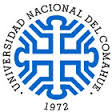El propósito de este trabajo es demostrar que las aguas domiciliarias tratadas, si cumplen con la legislación pertinente, pueden servir para su reutilización en aplicaciones terrestres.
Como en la Provincia del Neuquén no existe legislación para vertido en tierra, sino
solamente una guía, el objetivo de esta tesis es suministrar los fundamentos que puedan ayudar a tomar decisiones en cuanto a la implementación de una nueva legislación que permita la reutilización de este importante recurso. Para ello se ha tomado como estudio de caso la información obtenida de los análisis de las muestras de efluentes residuales domiciliarios provenientes de plantas modulares móviles de tratamiento que se han usado en asentamientos pequeños, especialmente en campamentos ligados a la actividad petrolera establecidos en la Provincia de Neuquén; por un período de años del 2006 al 2012. Se realizó la comparación de los parámetros específicos contemplados en diferentes normativas Regionales, y luego se contrastó esa información con la provista
por USEPA (Agencia de Protección Ambiental de los EE.UU.), FAO (Organización de
las Naciones Unidas para la Alimentación y la Agricultura) y OMS (Organización
Mundial de la Salud). Además, se evaluó la eficiencia de la tecnología de tratamiento de aguas residuales utilizada en plantas modulares. Ello permitió examinar las alternativas de reúso para reducir el impacto en el medio ambiente y la salud pública, bajo el encuadre de las normativas, tanto Provincial, Nacional, como Internacional, correspondientes. Este estudio también aporta conocimiento sobre la importancia del tratamiento de las aguas residuales domésticas en la región debido al aumento de asentamientos urbanos intensivos en zonas petroleras por el desarrollo de los nuevos yacimientos no convencionales en la zona de Añelo y alrededores. De los resultados obtenidos puede
concluirse que los tratamientos con estas plantas modulares son adecuados, y proveen un medio para la reutilización de las aguas servidas, cuando han sido tratadas, lo cual debe ser apoyado por la legislación pertinente, que es lo que se ha buscado con esta tesis.
In this paper we conducted a study of the quality of treated effluents from residential mobile modular treatment plants. Information obtained from the samples of household waste effluents from mobile modular treatment plants that were used in small settlements, especially linked to the oil industry established in the Province of Neuquen camps is analyzed; for a period of
years from 2006 to 2012. The overall objective of the study was to evaluate the quality of the final treated effluent house and identify opportunities for reuse of effluent in the area. By regulations issued by Enforcement Authorities of the Province of Neuquen effluent quality for discharge verifying their values with the established permissible levels we were evaluated.
Comparison of specific parameters referred to was also carried out in various regional and provincial regulations, then this information was compared with that provided by EPA (Environmental Protection Agency), FAO (Food and Agriculture Organization) and WHO (World Health Organization); to determine the potential for reuse of treated effluent. In addition, the efficiency of the technology of wastewater treatment used in mobile modular plants is evaluated. The performance was optimal mobile modular plants with high levels of pollutant removal efficiency. Therefore, it can be considered that this technology is feasible to operate in small settlements, with a good yield. The treated effluent quality was relatively good compliance with the stipulated limits. Parameters such as total nitrogen and total phosphorus exceeded the permissible limits of the rules. Keep in mind that these limits prescribed in the regulations correspond to tipping into surface water bodies as during the study period there
was no sample rules for discharge on the ground. It is proposed to use these mobile modular treatment plants household waste effluents as a viable treatment system, optimal for small towns wastewater, and likely to reuse these treated effluent for irrigation of forest species and native flora in the area with various purposes (windbreaks, fuelwood, erosion prevention).
Thus, the impact of the discharge of effluents into the environment and health of the population will be minimized.



